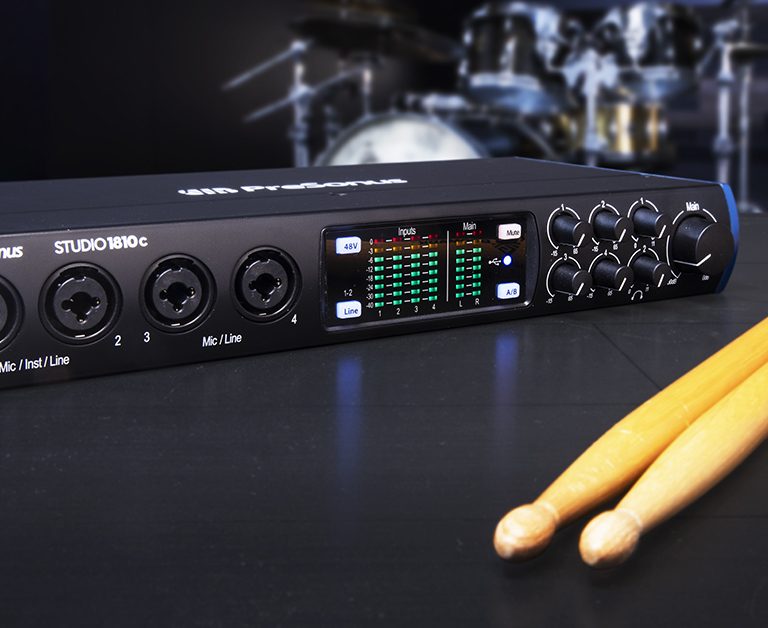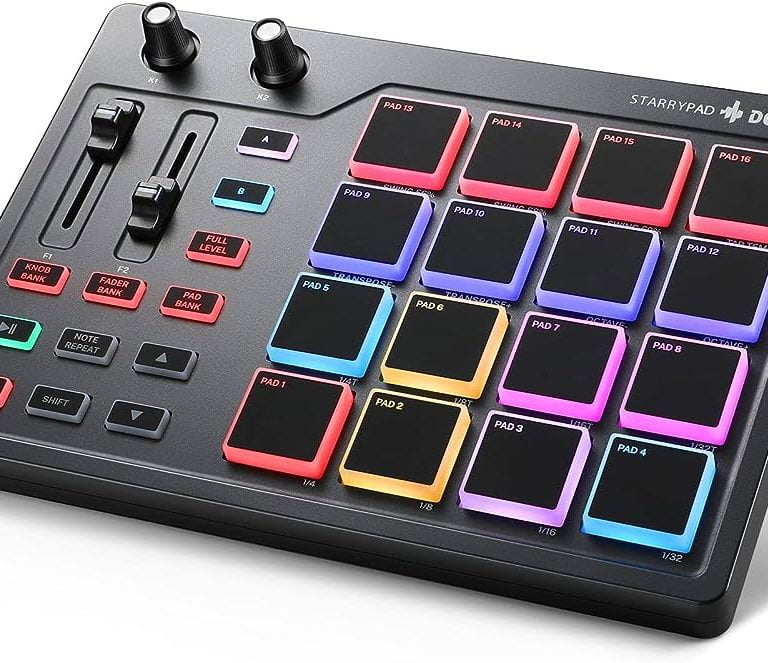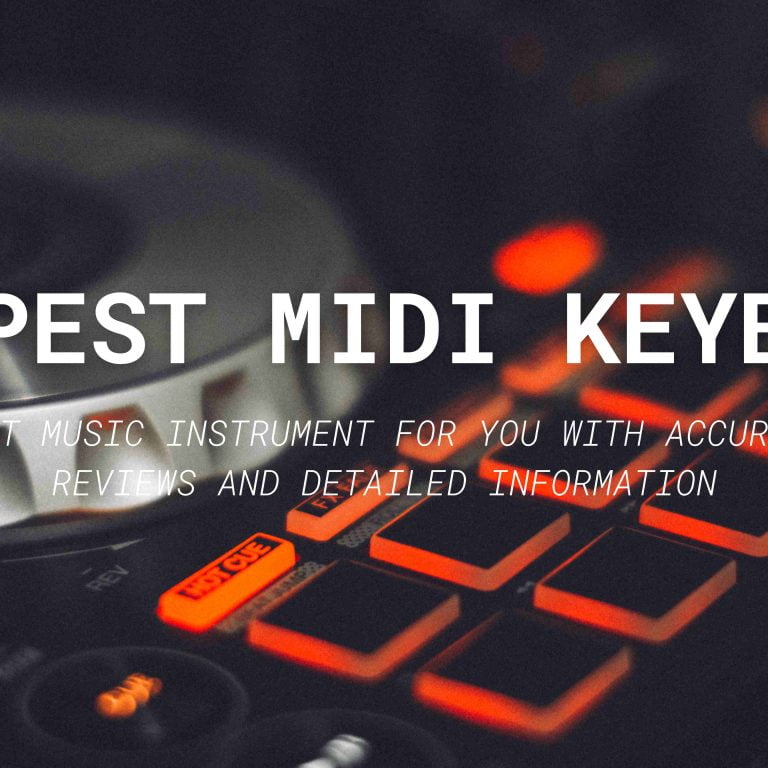Recording consoles, also known as audio consoles, combine multiple signals for amplification or recording. They are essential for professional sound production and come in various formats, like analog and digital.
Recording consoles play a critical role in music and audio production, merging signals from microphones and instruments for amplification or recording. They also provide direct control over sound outputs and are available in analog and digital formats. Professional studios and audio enthusiasts often seek vintage or modern recording consoles, such as Neve, SSL, API, and others, to achieve the desired sound quality.
While not strictly necessary for digital recording, recording consoles offer advanced control and customization options, making them valuable assets in sound engineering and production. Additionally, vintage recording consoles are highly sought-after due to their unique tonal characteristics and historical significance in the music industry.
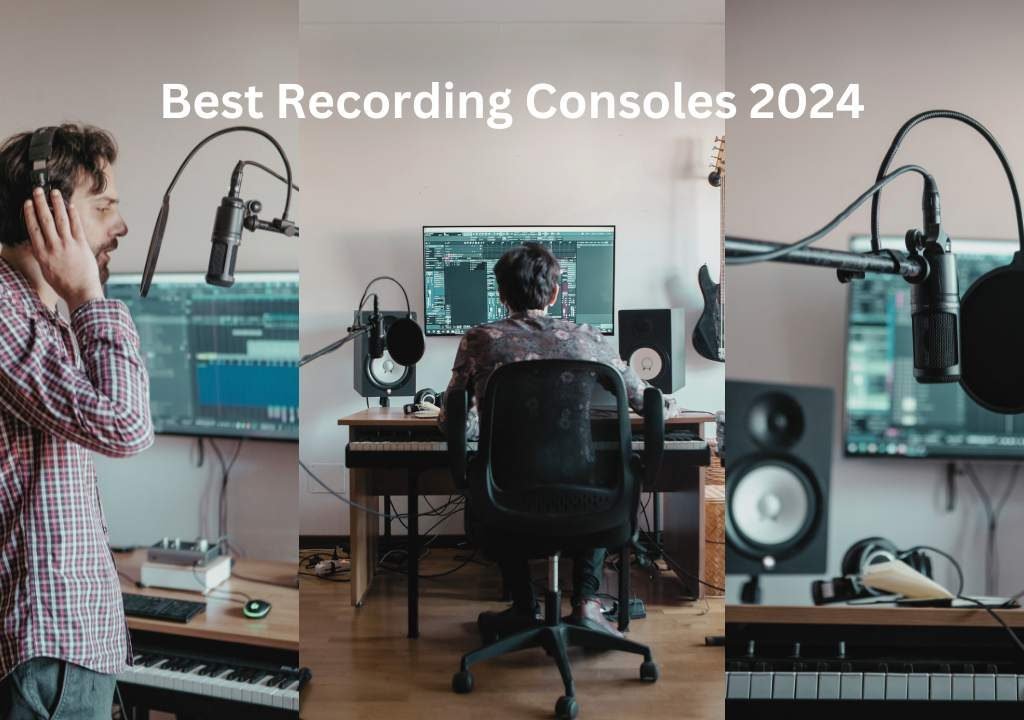
Table of Contents
Vital Components of Recording Consoles
Recording consoles, also known as audio consoles or mixing consoles, are essential tools in any professional recording studio. They serve as the central hub for all audio signals, allowing engineers to manipulate and control the sound before it’s sent to recording devices. Each component of a recording console plays a vital role in shaping the final audio output. Let’s delve into the critical elements that make up these consoles.
Understanding the Role of Preamps
Preamps, short for preamplifiers, are crucial components in recording consoles. They are responsible for amplifying weak signals from microphones or instruments to a level suitable for further processing. As the first step in the signal chain, preamps significantly impact the overall sound quality and character of the recording. The choice of preamps can shape the tonal coloration and dynamic range of the audio signal, making them a vital consideration for capturing high-quality recordings.
The Significance of the Eq Section
Equalization (EQ) is an essential feature of recording consoles that allows engineers to adjust the frequency response of audio signals. It consists of various bands of frequency controls that enable precise manipulation of the tonal balance. With EQ, engineers can boost or cut specific frequency ranges, sculpt the overall sound, and address any tonal inconsistencies. This capability is crucial for refining the sonic characteristics of individual tracks or the entire mix, contributing to a polished and balanced sound.
Dynamics Control Features
The dynamics control section of recording consoles encompasses components such as compressors, limiters, and gates. These tools are vital for managing the dynamic range and perceived loudness of audio signals. Compressors and limiters regulate the fluctuation between loud and soft passages, ensuring a consistent and controlled sound. On the other hand, gates help eliminate unwanted background noise by attenuating signals below a certain threshold. These dynamics control features play a crucial role in creating professional, polished recordings with a balanced and controlled dynamic range.
Integration with Modern Digital Workflows
Modern recording consoles are designed to seamlessly integrate with digital audio workstations (DAWs), allowing for a hybrid approach to audio production. This integration enables engineers to harness the benefits of both analog signal processing and digital editing and mixing capabilities. By interfacing with DAWs, recording consoles ensure a streamlined and efficient workflow, providing tactile control over digital audio within the familiar hardware environment of a console.
Recording Consoles in Various Studio Setups
When it comes to recording studios, the choice of a recording console plays a crucial role in shaping the sound and workflow of the studio. Recording consoles come in various sizes and formats, each catering to different studio setups and requirements. Whether it’s a small project studio or a professional recording environment, the right recording console can make a significant impact on the quality of the recordings.
Small-format Consoles for Project Studios
Small-format recording consoles are ideal for project studios and home recording setups. These compact consoles are designed to offer essential functionalities while saving space and cost. They are suitable for musicians and producers who work on a limited number of channels and require a streamlined workflow. Despite their size, small-format consoles can still provide professional-grade preamps, EQs, and routing capabilities.
Large-format Consoles for Professional Environments
In professional recording environments, large-format recording consoles reign supreme. These consoles are equipped with a wide array of channels, advanced routing options, and extensive signal processing capabilities. They are commonly found in commercial recording studios, film scoring stages, and broadcast facilities where complex audio productions are handled. Large-format consoles offer the flexibility and power required to manage multiple input sources and create intricate mixes.
The Resurgence of Vintage Consoles
In addition to modern recording consoles, there has been a resurgence of interest in vintage analog consoles. Vintage consoles from revered manufacturers such as Neve, SSL, and API are highly sought after for their unique sonic characteristics and historical significance. Many studios are incorporating these vintage consoles into their setups to impart a classic analog warmth and color to their recordings while also preserving a piece of audio engineering heritage.
Recording Consoles: Impact on Sound Quality
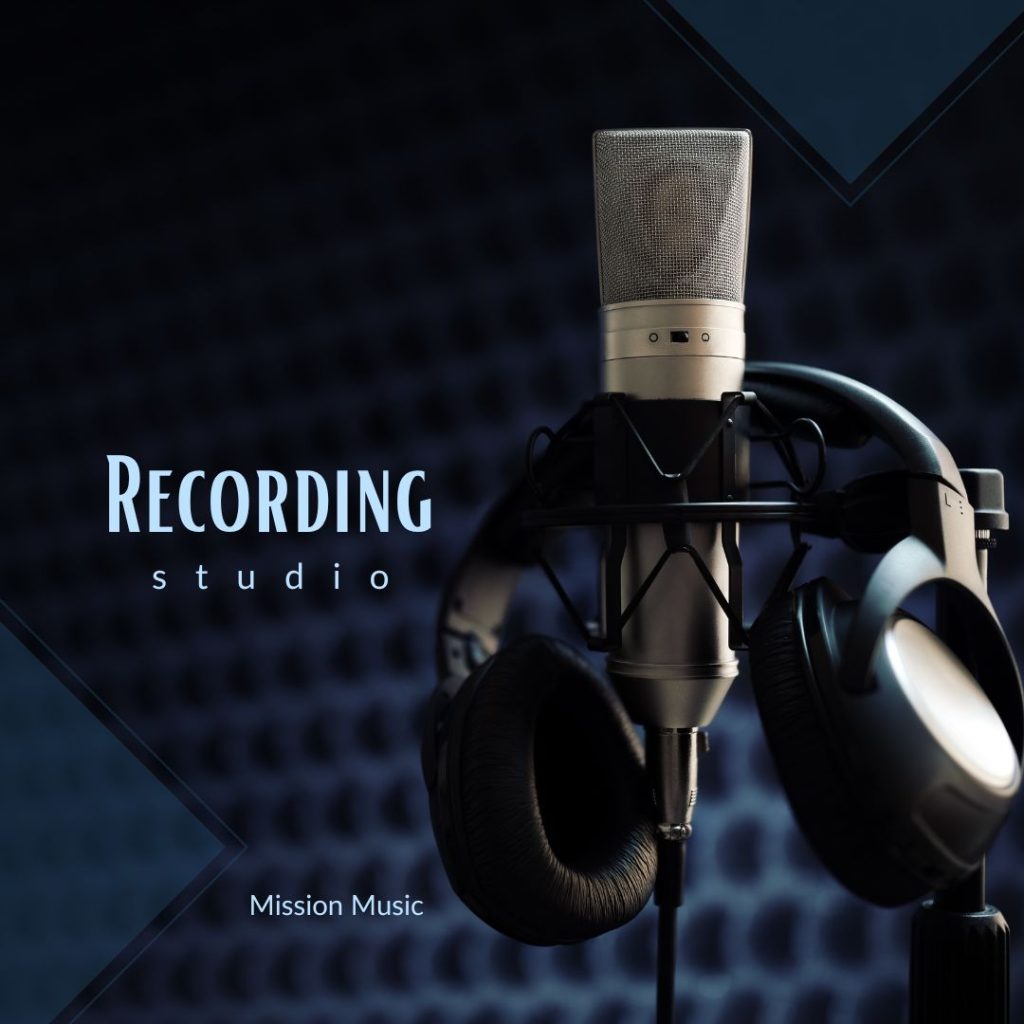
Recording consoles play a pivotal role in shaping the sound quality of audio recordings. Whether it’s the depth and warmth of analog sound or the precision and clarity of digital consoles, the choice of recording console can significantly influence the character of the studio sound. Understanding how consoles impact sound quality can help in making informed decisions when setting up a recording studio.
Depth and Warmth of Analog Sound
Analog recording consoles are renowned for the depth and warmth they bring to the sound. The inherent analog circuitry and components add a rich and organic quality to the audio, characterized by smooth saturation and natural harmonics. This results in a sonically pleasing effect that many producers and engineers prefer for its musicality and vintage vibe.
Precision and Clarity in Digital Consoles
On the other hand, digital recording consoles offer precision and clarity that are crucial for modern productions. With advanced digital processing and high-resolution converters, digital consoles deliver transparent and pristine audio quality. They allow for meticulous editing and offer a clean, defined sound that suits a wide range of musical genres and production styles.
How Consoles Shape the Character of Studio Sound
Recording consoles play a pivotal role in shaping the overall character and sonic identity of a studio. They impart a unique tonal signature to the recordings, influencing factors such as dynamic range, frequency response, and spatial imaging. This distinctive sonic imprint ensures that each studio has its own sonic fingerprint, contributing to the authenticity and uniqueness of the recorded material.
Selecting the Right Console for Your Studio
Choosing the perfect recording console for your studio is a crucial decision that can significantly influence the quality of your audio production. With numerous options available on the market, selecting the right console tailored to your specific needs and preferences is essential to elevating your recording and mixing experience.
Assessing studio needs and workflow
Before investing in a recording console, it’s vital to conduct a thorough assessment of your studio’s needs and workflow. Evaluate the type of audio projects you typically work on and determine the number of input channels, auxiliary sends, and monitoring capabilities required to efficiently handle your productions. Consider the physical space available in your studio to ensure that the chosen console fits comfortably without obstructing workflow. Understanding the unique workflow of your studio will help you identify the essential features necessary to streamline your recording and mixing processes.
Balancing budget and quality
When it comes to choosing a recording console, balancing budget and quality is critical. While top-of-the-line consoles from industry-leading brands offer unparalleled performance, they often come with a hefty price tag. However, it’s essential to strike a balance between your budget constraints and the quality of the console. Explore options that offer the features essential for your studio’s requirements without compromising on audio fidelity and reliability. Prioritize key features that align with your studio’s demands while considering the long-term investment value of the chosen console.
Brand Comparisons and Industry Favorites
When comparing recording consoles, delving into brand comparisons and industry favorites can provide valuable insights into the best options available. Research well-established brands renowned for producing high-quality consoles and examine their product offerings. Pay attention to the reputation and track record of each brand within the industry, and consider user reviews and experiences to gauge the performance and reliability of their consoles. Identifying industry favorites and understanding their unique features can guide you in making an informed decision that aligns with the standards set by professionals in the field.
Navigating the Recording Console Market
When it comes to recording music, finding the right recording console is crucial for achieving top-notch sound quality. With a plethora of options available, navigating the e-cording console market can be a daunting task. Whether you are considering new consoles or weighing the benefits of vintage options, understanding key factors such as where to find top-quality consoles and their maintenance and longevity is essential to making an informed decision.
New Versus Vintage Console Considerations
When exploring the recording console market, one of the primary decisions is choosing between new and vintage consoles.
Where to Find Top-Quality Consoles
Identifying the sources for top-quality recording consoles is crucial.
Maintenance and Longevity of Audio Consoles
Ensuring the maintenance and longevity of e-cording consoles is essential for their optimal performance and longevity.
Add any tables, bullet points, or ordered lists as needed for further content.
Best Recording Consoles in 2024
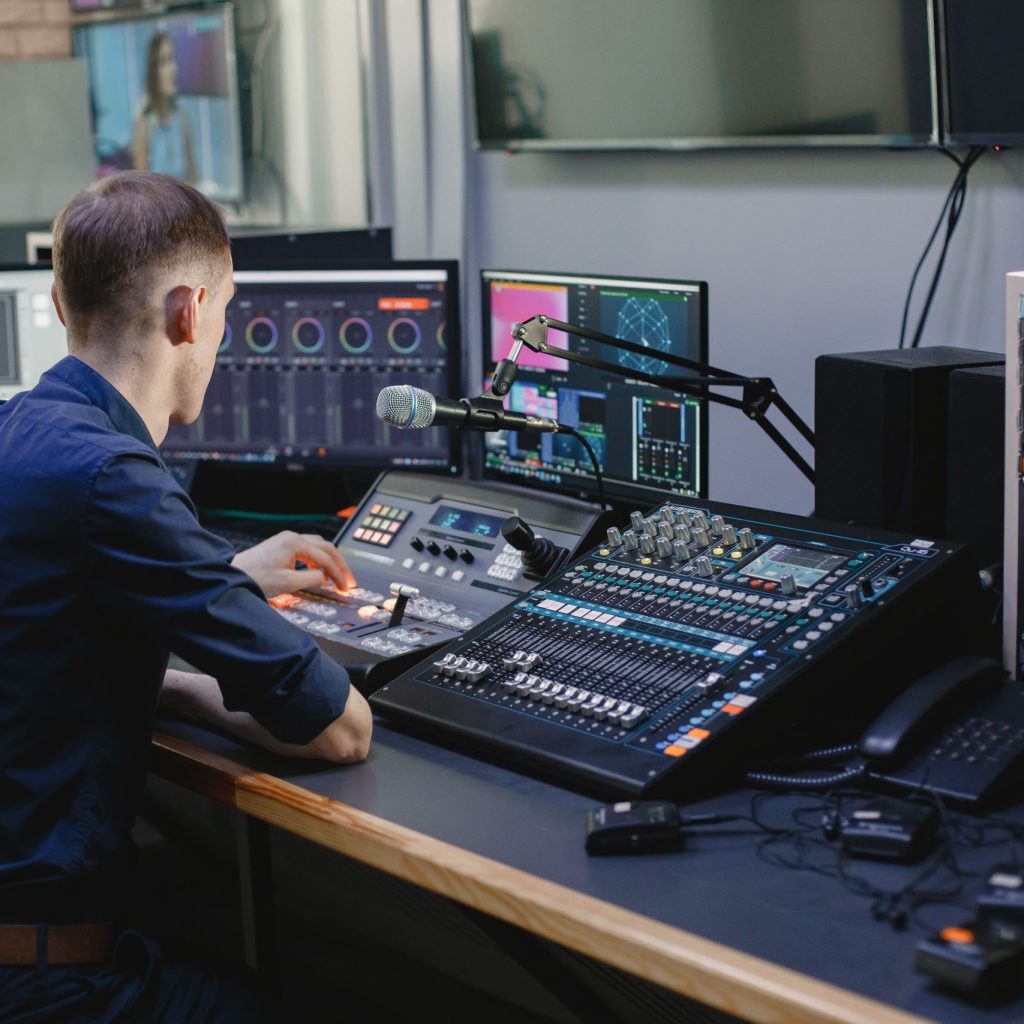
Credit: mhzav.com
Certainly! Let’s explore some of the top studio recording/mixing console brands that are making waves in the audio industry in 2024. These consoles play a crucial role in achieving pristine audio quality and facilitating efficient workflows for professional studios. Here are the big players:
- Solid State Logic (SSL): Synonymous with high-end studio consoles, SSL has been a dominant force since the late 70s. Their consoles are known for their exceptional audio quality, clean workflow, dependability, and responsiveness. SSL boards grace professional studios worldwide, leaving a lasting impact on engineers and musicians. Notable SSL consoles include the AWS δelta, Duality Fuse, ORIGIN, and the legacy 4000 E and XL 9000 K.
- AMS Neve: Renowned for their analog consoles, AMS Neve continues to be a favorite among professionals. Their consoles offer warm, vintage sound and robust build quality.
- Rupert Neve Designs: Founded by the legendary Rupert Neve, this brand produces consoles that combine classic analog warmth with modern features. Their consoles are highly regarded for their sonic character.
- API (Automated Processes, Inc.): API consoles are known for their punchy sound, modular design, and versatility. They’ve been a staple in recording studios for decades.
- Trident: Trident consoles have a rich history and are celebrated for their musical EQs and preamps. The Series 80B and Series 88 are iconic models.
- Helios: Helios consoles have a distinct vintage sound, favored by artists like The Beatles and Led Zeppelin. The Type 69 is a classic Helios model.
- Wunder Audio: Wunder Audio’s consoles are handcrafted and meticulously designed. Their PEQ2R and CM7 models are highly sought after.
- Daking: Daking consoles offer transparent sound and straightforward controls. The Console III is a notable model.
- Neotek: Neotek consoles are known for their musical EQs and smooth workflow. The Elan II is a popular choice.
- Audient: Audient consoles provide excellent value for money. Their ASP8024 Heritage Edition is a versatile option.
Remember, preferences vary, and each engineer or studio may have their favorites. These brands continue to shape the world of professional audio recording and mixing, ensuring that every studio session becomes a piece of history.
Frequently Asked Questions About Ecording Consoles
What is a Recording console?
A recording console combines and routes audio signals for amplification or recording, including microphones and electric instruments. In digital recording, it’s not necessary, as computer controls can replace their functions. Consoles are expensive and used mainly for analog recording. Analog and digital signals are mixed and then broadcast, amplified, or recorded.
Do I need a Recording console?
A recording console is not necessary for digital recording, as functions can be controlled directly on a computer. Additionally, consoles are often expensive.
What Is the Best Mixing Console of All Time?
The best mixing console of all time is subjective, but popular choices include Neve, SSL, API, and more. These analog consoles offer high-quality sound and versatile features, making them preferred by many audio professionals.
What Is the Difference Between an Audio Console and an Audio Mixer?
An audio console combines multiple sounds for amplification or recording, which can include signals from microphones and electric instruments. A mixer, on the other hand, may control analog or digital signals and sum modified signals for broadcast, amplification, or recording.
Audio consoles tend to be more expensive and not necessary for digital recording.
Conclusion
Recording consoles play a vital role in audio production, offering a centralized control hub for routing and mixing multiple signals. While digital recording has diminished the necessity of physical consoles, they remain significant for many recording professionals. With various options available, finding the right console can enhance the quality of your recordings and streamline the production process.
To check our more blogs Click Here


